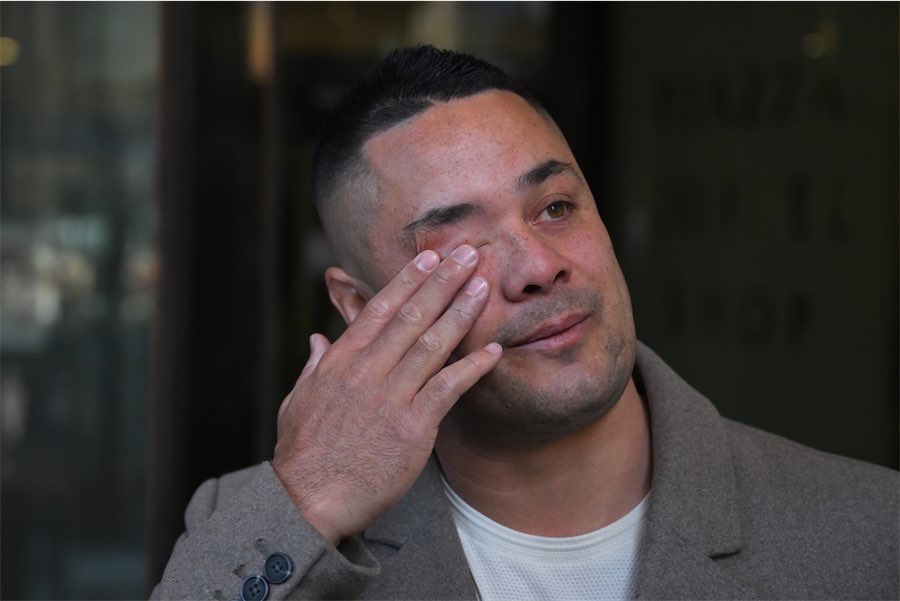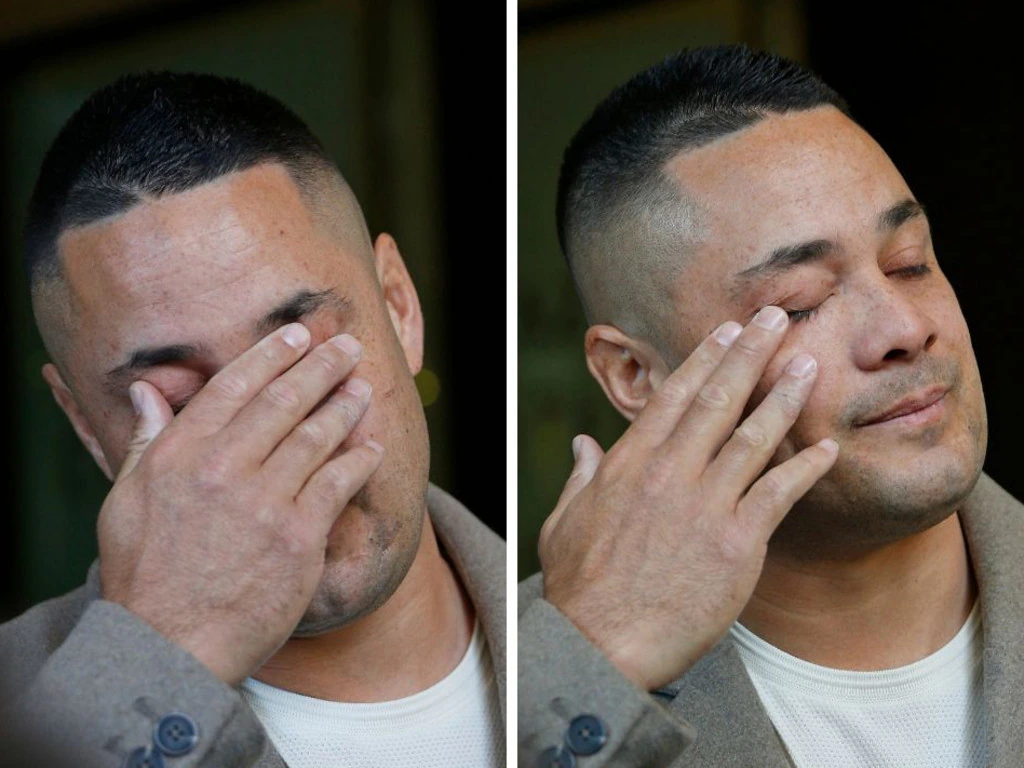Jarryd Hayne, a former professional football player, said he felt vindicated after rape charges were dropped against him.
He had faced multiple trials and two convictions during his six-year legal battle. The 36-year-old said the ordeal had been a roller coaster.

In June, an appeals court overturned his two rape convictions.
After prosecutors decided not to proceed with a fourth trial, Hayne was released from a Sydney court.
Hayne, who was visibly relieved after the court dismissed the rape charges, thanked God for maintaining his composure throughout the ordeal.
He also said his wife, who was in court for the hearing, helped him through the ordeal.
Hayne also thanked his family, friends, and the people who stood by him during his ordeal.
He was sentenced to spend up to four years in prison after he was found guilty in April 2023.
It was claimed that Hayne raped a woman at her home in Newcastle during the 2018 National Rugby League grand final.
His rape convictions were eventually overturned by the Criminal Appeal Court after it ruled that a judge should have allowed the complainant to be questioned under cross-examination.
On Friday, the prosecutors informed the court that they would not proceed with Hayne’s fourth trial.
During the hearing, the judge overseeing his case noted that the Crown had decided to end all its proceedings against him.
Three trials were held for the complainant, who cannot be identified due to legal reasons.
She changed her mind about engaging in sex with Hayne after he allegedly showed up outside her house.
Hayne’s lawyer Tim Game SC said in April that the woman deleted her messages with him, which indicated that she had initially shown interest in him.
Hayne’s lawyers argued that the woman should have been asked to explain her statement to the police, in which she reportedly said that if her messages were released, she would be “f***ed and he will get off”.
Judge Graham Turnbull, who was overseeing his third trial, did not allow the woman to be questioned.
Hayne’s rape convictions were eventually overturned by the Criminal Appeal Court after it ruled that a judge should have allowed the complainant to be questioned under cross-examination.
The former professional football player was a prominent member of the NSW State of Origin team for several years.

